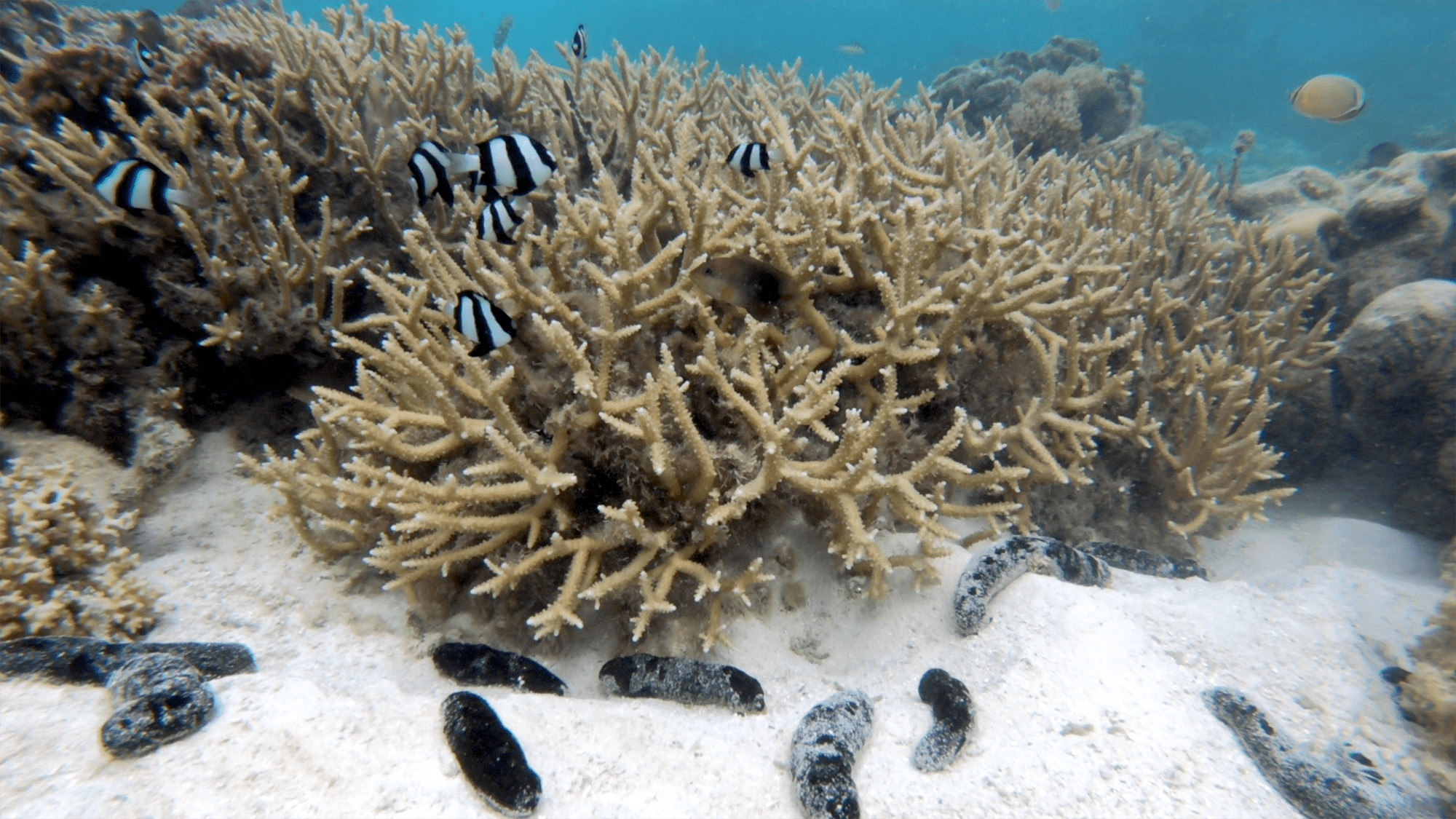

Coral reefs all over the world are in serious danger. However, a critical way to keep reefs healthy likely comes from a lowly animal, some of whom spray goo out of their butts in self-defense. According to a study published February 26 in the journal Nature Communications, about 25 percent of coral reef’s health is dependent on sea cucumbers that keep the reefs clean.
[Related: Surprise! These sea cucumbers glow.]
Over harvesting a critical member of the reef
Coral reefs currently face numerous threats, from ocean temperatures soaring to 100 degrees Fahrenheit to light harming their reproduction to bleaching. Reef health also may depend on sea cucumbers and the role that they play in the reef ecosystem. There are more than 1,200 species of sea cucumbers in the world’s oceans. These marine invertebrates can be less than an inch long up to six feet long and use their butts for both eating and breathing. They gobble up sediments on the ocean floor and on coral reefs similar to robot vacuum cleaners, sucking up, digesting, and then excreting sediments and eating bacteria. However, sea cucumbers have been over harvested for hundreds of years and cannot cannot reproduce in low density areas and are much more difficult to find.
“Humans have largely extirpated sea cucumbers from much of the world’s oceans and are still collecting thousands of tons per year,” Georgia Tech university marine ecologist Mark Hay tells PopSci.

Between 2022 and 2020, annual wild harvests of sea cucumbers increased by about 30 percent. According to the authors of this study, this overharvesting is likely having direct effects on reefs, since removing predators from the ecosystem can have cascading effects on the ecosystem. Overhunting of otters for their pelts has led to degradation of kelp forests in California. Wolves can help keep the beaver population in check, and prevent their dams from creating ponds that turn forests into wetlands.
‘Scum suckers in the great fishtank of Earth’
To gather more concrete data on the role sea cucumbers play on the reef, Hay and research scientist and ecologist Cody Clements looked at Mo’orea, a tropical island in French Polynesia. Clements has planted upwards of 10,000 corals over the course of his career. He was planting coral in the sand off the island shore where many sea cucumbers were present. When he cleared them out, he noticed that the corals started to die.
[Related: Scientists are intentionally bleaching and ‘cryopreserving’ coral.]
“I’ve planted a lot of corals in my day, and my corals generally don’t die,” Clements said in a statement. “So I thought there must be something to this.” Clements is also a co-author of this new study.
With this oddity in mind, Hay and Clements designed an experiment. The team set up patches to monitor the health of the coral with and without sea cucumbers. They marked the patches with GPS and monitored their health daily.
They found that the coral patches without sea cucumbers had a white band developing at the base of the corals. This white band would eventually work its way up and kill the entire coral colony. Hay refers to this as the “white band of death” and it is associated with coral diseases seen all over the world.

The presence of sea cucumbers appeared to suppress the spread of coral disease. Hays and Clements found that corals without sea cucumbers present were 15 times more likely to die. They conducted a similar experiment in Palmyra Atoll, part of the U.S. Minor Outlying Islands. This experiment used different coral species and different sea cucumbers, but yielded similar results. Sea cucumbers seemed to be a major missing component of what had previously been an intact ecological system.
“If you remove all the scum suckers in the great fish tank of Earth, you’re going to get a dirty tank eventually,” Clements said. “People have paid lip service to the idea that sea cucumbers could be important for a long time, but we didn’t know the scale of their importance until now.”
An ecological fuse?
In future studies, Hay says the team hopes to investigate which coral species are most susceptible and most resilient to a drop in sea cucumber populations, which sea cucumber species are the most critical to reef function, and study the effects of warming ocean temperatures and added nutrients on reef and sea cucumber health.
The team also warns of the effects of removing so many sea cucumbers from the ecosystem, and urges major cutbacks to pollution and overharvesting in order to increase sea cucumber populations and reef health at the same time.
“This removal may have lit an ecological fuse that has been slow burning for decades but is now blowing up as devastating episodes of coral disease as we nutrify and heat the ocean, both of which advantage pathogens,” says Hay. “Just as sanitation workers were ‘essential workers’ during COVID, sea cucumbers may be essential workers on the reef. But we are only now recognizing their role and critical importance.”
